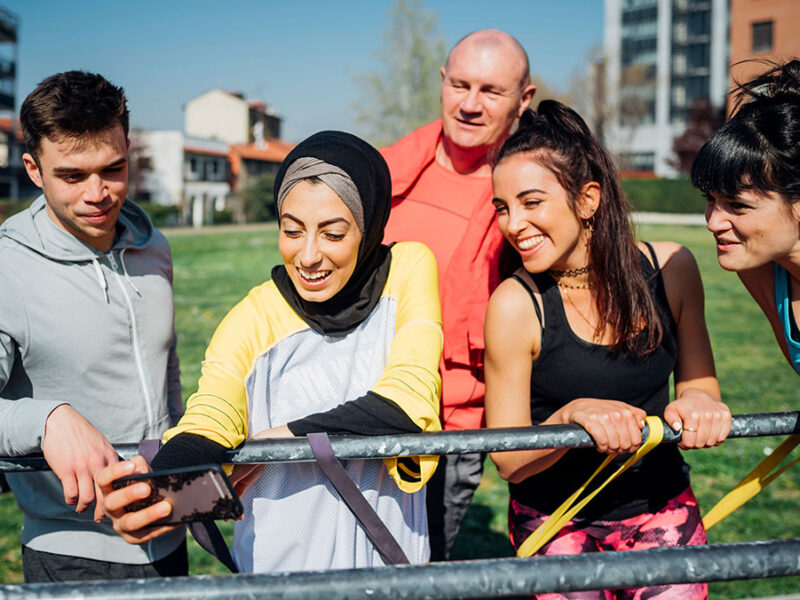The development of daily living and life skills is a crucial aspect of the support provided under the National Disability Insurance Scheme (NDIS). These skills are the building blocks of independence, enabling individuals with disabilities to navigate daily challenges with confidence and autonomy. Through targeted support and training, participants can enhance their ability to manage personal care, household tasks, and social interactions, ultimately leading to a more empowered and fulfilling life. In this article, we’ll explore the importance of developing these essential skills and how they contribute to a participant’s overall well-being.
What Are Daily Living and Life Skills?
Daily living skills refer to the practical tasks that individuals need to perform on a regular basis to maintain their health, safety, and comfort. These include:
- Personal Care: Managing hygiene, grooming, and dressing.
- Household Management: Cooking, cleaning, laundry, and other domestic chores.
- Health and Nutrition: Preparing meals, understanding dietary needs, and managing medication.
- Financial Management: Budgeting, paying bills, and understanding financial responsibilities.
- Social Skills: Communicating effectively, building relationships, and participating in community activities.
- Problem-Solving: Making decisions, handling emergencies, and adapting to new situations.
Life skills encompass a broader range of abilities that contribute to personal growth, self-reliance, and the ability to engage with the wider community. These skills are critical for achieving greater independence and improving quality of life.
Why Is the Development of These Skills Important?
The development of daily living and life skills is fundamental to empowering individuals with disabilities to lead more independent and self-determined lives. Here are some of the key reasons why these skills are so important:
Promotes Independence: Developing these skills allows individuals to take control of their lives, reducing their reliance on carers or support workers. This independence is empowering, fostering a sense of achievement and self-worth.
Enhances Quality of Life: Being able to manage daily tasks independently contributes to a higher quality of life. Individuals who can care for themselves and their surroundings are more likely to feel comfortable, safe, and satisfied in their living environment.
Builds Confidence and Self-Esteem: Successfully mastering new skills can boost confidence and self-esteem. This positive self-image encourages individuals to take on new challenges and continue their personal development journey.
Supports Social Integration: Life skills such as effective communication and social interaction are essential for building relationships and participating in community life. These skills help individuals connect with others, form friendships, and feel more included in their communities.
Improves Health and Safety: Skills such as personal care, cooking, and health management are directly linked to an individual’s physical well-being. By developing these abilities, participants can better maintain their health, avoid accidents, and manage any medical conditions they may have.
Tailored Support for Individual Needs
The NDIS recognises that each participant’s needs and goals are unique. As such, the development of daily living and life skills is tailored to the individual’s circumstances, abilities, and aspirations. This personalised approach ensures that the support provided is relevant, practical, and effective.
Support workers play a key role in this process, working closely with participants to assess their current skill levels and identify areas for improvement. They provide hands-on training, guidance, and encouragement, helping individuals to build their confidence and competence over time.
In addition to one-on-one support, participants may also benefit from group training sessions or workshops. These settings offer the added advantage of social interaction, allowing individuals to learn from each other and practise their skills in a supportive environment.
A Pathway to Greater Opportunities
Developing daily living and life skills opens up a world of opportunities for participants. With greater independence, individuals can explore new possibilities, whether that’s pursuing further education, securing employment, or engaging in volunteer work. These opportunities not only enhance personal growth but also contribute to a more inclusive and diverse society.
For example, someone who has developed strong financial management skills might feel confident enough to manage their own budget, save for a holiday, or even start a small business. Similarly, improved social skills might lead to more active participation in community events, building a broader network of friends and acquaintances.
The Role of Families and Carers
Families and carers also play a crucial role in supporting the development of daily living and life skills. They provide encouragement, create opportunities for practise, and reinforce the learning that takes place during support sessions. By working together with support workers, families can help ensure that the skills learned are applied consistently in everyday life.
It’s also important for families to celebrate the successes and milestones achieved by their loved ones. Acknowledging progress, no matter how small, can boost motivation and reinforce the value of ongoing skill development.
The development of daily living and life skills is a cornerstone of the support provided under the NDIS, offering participants the tools they need to lead more independent, fulfilling lives. By mastering these essential skills, individuals with disabilities can enhance their quality of life, build confidence, and open up new opportunities for personal growth and community participation.
At Summit Care Services, we are committed to providing personalised, supportive, and empowering assistance to help our participants achieve their goals. Whether it’s learning to manage personal care, handle household tasks, or navigate social situations, we are here to support you every step of the way.




